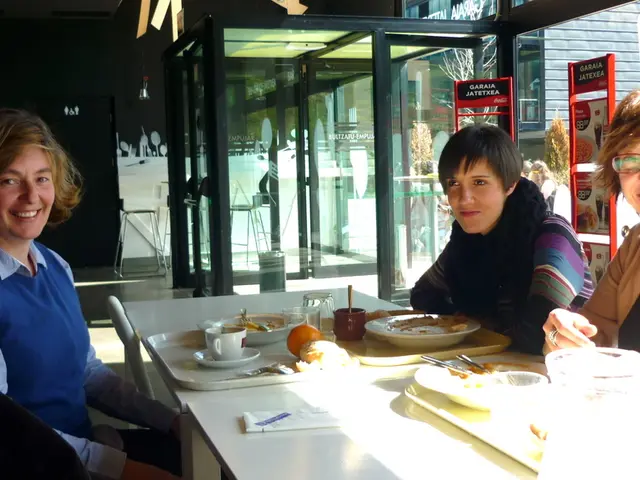Germany's Loneliness Fight: Lessons from Kazakh Hospitality
Germany, with its individualistic society and increasing rates of loneliness, could benefit from the communal values of Kazakh culture. Traditional Kazakh hospitality, deeply rooted in their nomadic past, emphasizes mutual support and openness, which could help combat loneliness in Germany.
Kazakh culture, known for its hospitality and curiosity, considers guests as 'messengers of God'. This welcoming tradition, Qonaqzhailyq, involves offering food and tea to guests regardless of invitation. In contrast, German society is more private and concerned with personal space. Asking about someone's salary, for instance, is considered too personal.
Germany's trend towards individualization brings both freedom and loneliness. By 2025, one in five people is expected to live alone, above the EU average. About 60% of Germans experience feelings of loneliness, linked to demographic changes and rising single-person households, affecting both older and younger generations. Kazakh hospitality and communal behavior, originating from traditional cultural values, could help foster social connections and reduce loneliness in Germany.
Germany, as an immigrant destination, could learn from Kazakh nomads' hospitality and mutual support. By embracing some aspects of Kazakh culture, such as their welcoming traditions and emphasis on community, Germany could potentially combat loneliness and promote a more connected society.
Read also:
- Tune In: Harmony at Rutherford Reveals Elevated Senior Living on 880 CHED
- Thousands of Business Leaders Inspired and Invigorated by Tony Robbins' Speech at ASI Chicago
- Elderly care services, offered by Senior Helpers, aim to ensure seniors maintain their autonomy and safety.
- Renowned chef Yoshinori Kinomoto showcases authentic Japanese flavors at Michelin-starred restaurant Zuicho located in Macau, allowing patrons a taste of Japan's culinary heritage.








